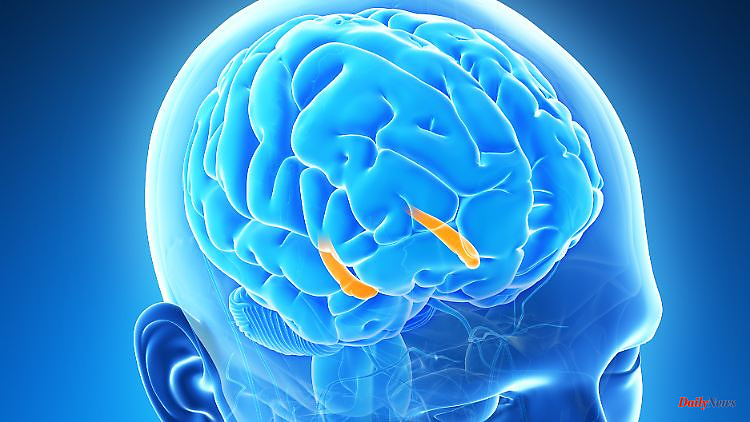Age is the greatest risk for Alzheimer's disease. But the special form of dementia can also occur at a young age. Preliminary diagnosis in a 19-year-old man in China reveals exceptionally early Alzheimer's disease. Doctors can't explain that.
In a case report, researchers at Capital Medical University in Beijing have reported on a 19-year-old patient who probably has Alzheimer's disease. This would make him the youngest Alzheimer's patient in the world to be diagnosed with this neurodegenerative disease. So far, a 21-year-old man was the youngest person diagnosed with Alzheimer's. His case was reported by researchers from Spain in 2021.
In principle, the risk of Alzheimer's increases in adulthood with every year of life. But there are also exceptions. Around two to four percent of all people are affected by dementia, which also includes Alzheimer's disease, before the age of 65. If the disease is diagnosed in young people, then in most cases it can be traced back to genetic causes. This is also the case with the 21-year-old in Spain. However, neither such a genetic cause nor other diseases or injuries could be identified as the cause of the 19-year-old's symptoms in China. According to their own statements in the Journal of Alzheimer's Disease, the researchers cannot explain why the disease developed so early. You are faced with a real medical conundrum.
Metro.uk.co reports that the young man in China started having problems with his memory and concentration when he was just 17 years old. As a result, he was initially no longer able to concentrate on his education at school. A year later, he gradually lost his short-term memory. He couldn't remember if he had eaten or done his homework. Eventually, the cognitive limitations became so severe that he had to drop out of college shortly before graduation.
The man was examined several times in hospitals in search of the cause of his considerable limitations. Even his entire genome has been sequenced and looked at. The researchers did not see any known mutations that could be associated with Alzheimer's disease. So far, no one in the teenager's family has developed Alzheimer's or dementia.
Only through the standard tests to detect memory loss did the treating physicians come to the conclusion of Alzheimer's. The MRI images taken of the young man's brain also showed the signs typical of dementia. For example, the hippocampus, a part of the brain primarily responsible for memory, had shrunk. Elevated concentrations of certain tau proteins, which have been associated with dementia for a long time, could also be detected in the brain water of men. The so-called beta-amyloid ratio, which is used to diagnose Alzheimer's, was also noticeable in the man.
Since a brain biopsy is associated with too many risks for the patient, the doctors had to do without it. They therefore do not know to this day what exactly was the cause of the very early Alzheimer's disease in men and therefore continue to describe it as a "probable" Alzheimer's diagnosis.
(This article was first published on Monday, February 27, 2023.)












